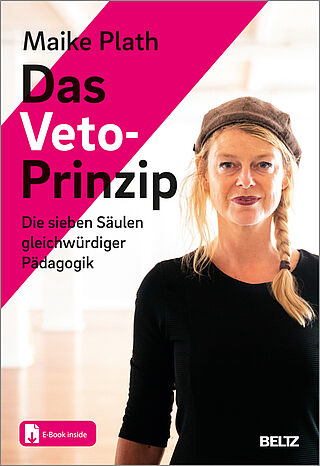- Kinder- & Jugendbuch
-
Fachmedien
- Fachmedien
- Erziehungswissenschaft
- Frühpädagogik
- Pädagogik
- Psychologie
-
Sozialpädagogik/Soziale Arbeit
- Sozialpädagogik/Soziale Arbeit
- Übersicht
- PRODUKTE
- Neuerscheinungen
-
ZEITSCHRIFTEN
- ZEITSCHRIFTEN
- Betrifft Mädchen
- Deutsche Jugend
- Forum Erziehungshilfen
- Gemeinsam leben
- Kriminologisches Journal
- Migration und Soziale Arbeit
- Österreichisches Jahrbuch für Soziale Arbeit
- Pflege & Gesellschaft
- Soziale Probleme
- Sozialmagazin
- Theorie und Praxis der Sozialen Arbeit
- Zeitschrift für Sozialpädagogik
- Zeitschrift für Soziologie der Erziehung und Sozialisation
- SERVICE
- Enzyklopädie Soziale Arbeit Online (ESozAO)
- Open Access
- Autor:innen
- Manuskripte
- Soziologie
- Training, Coaching und Beratung
- Sachbuch/ Ratgeber
- Service
- Leseförderung
Giving learners a voice
The Veto Principle
The Veto Principle
1st ed. published 2023. 258 pages All rights available
The Veto Principle
Teachers are in an asymmetrical (power) relationship with students in having a leadership role. Plath poses the question: which road leads to an encounter of equals even if the pedagogical context is challenging? With the veto principle, the fundamental right of veto for all of those involved, she provides a concrete answer and presents some potential courses of action in practical educational situations. She has based it on Jesper Juul's concept of equality and here relates it to leadership contexts with learning groups.
On the one hand, the book offers self-training for teachers. On the other, strategies and exercises for implementing the veto principle in learning groups. The aim is to give learners joint and personal responsibility and to initiate a process whereby they themselves can acquire leadership skills. As a result, the veto principle strengthens motivation and cooperation in the learning and design processes.
Target Group
Teaching staff, teachers in training and social educatiors
